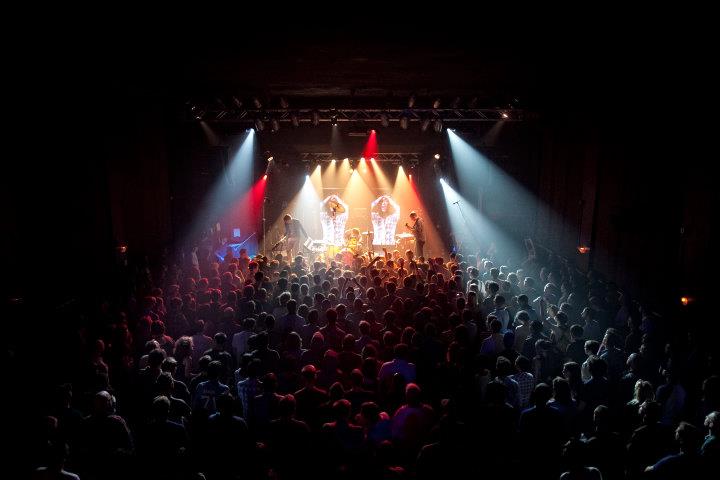
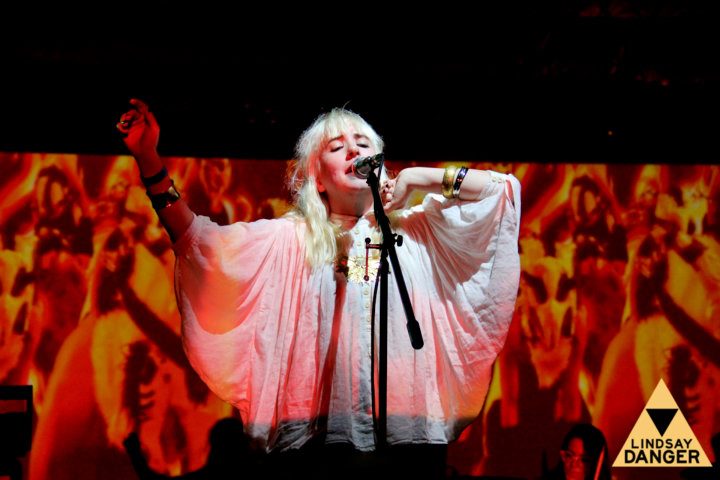
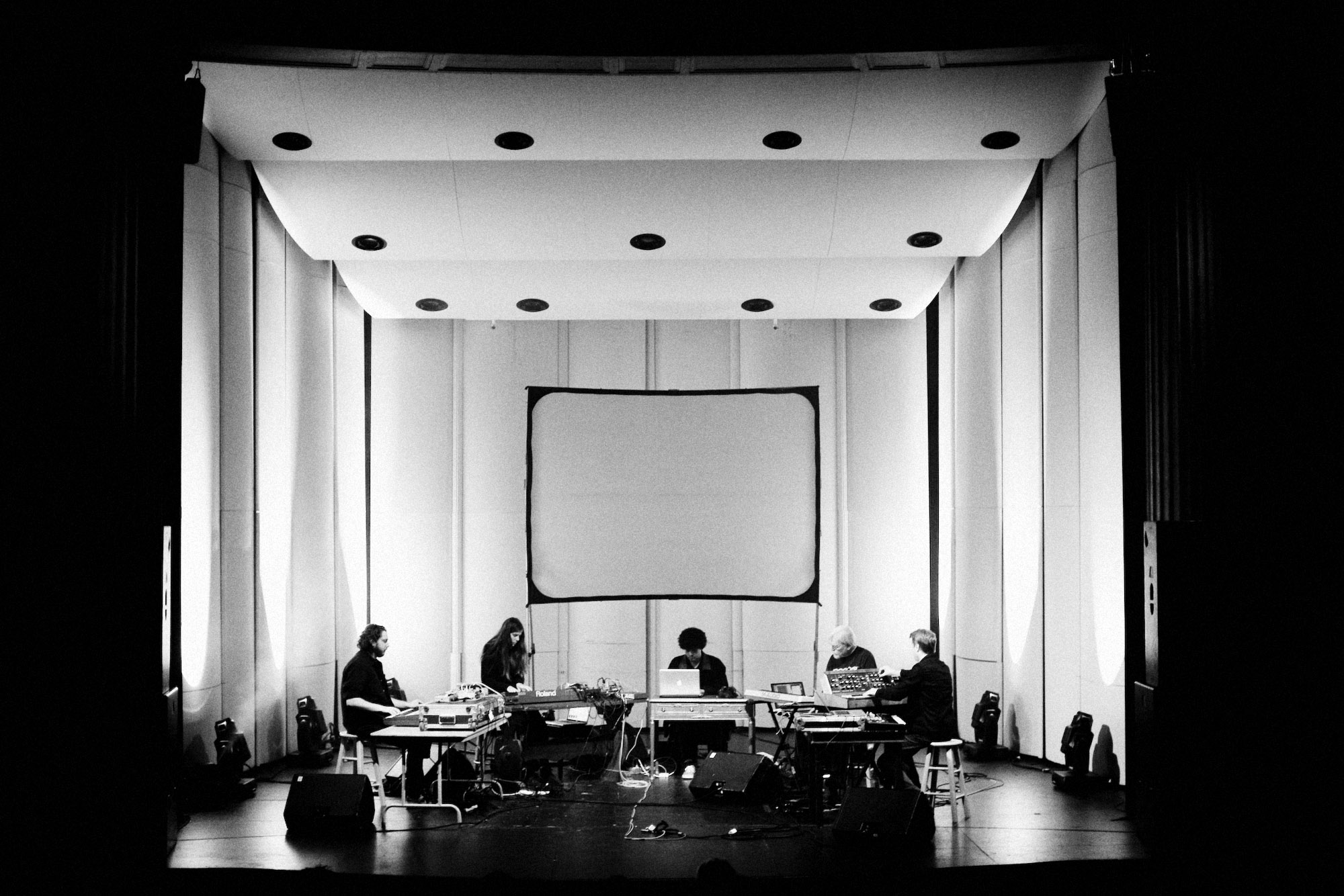
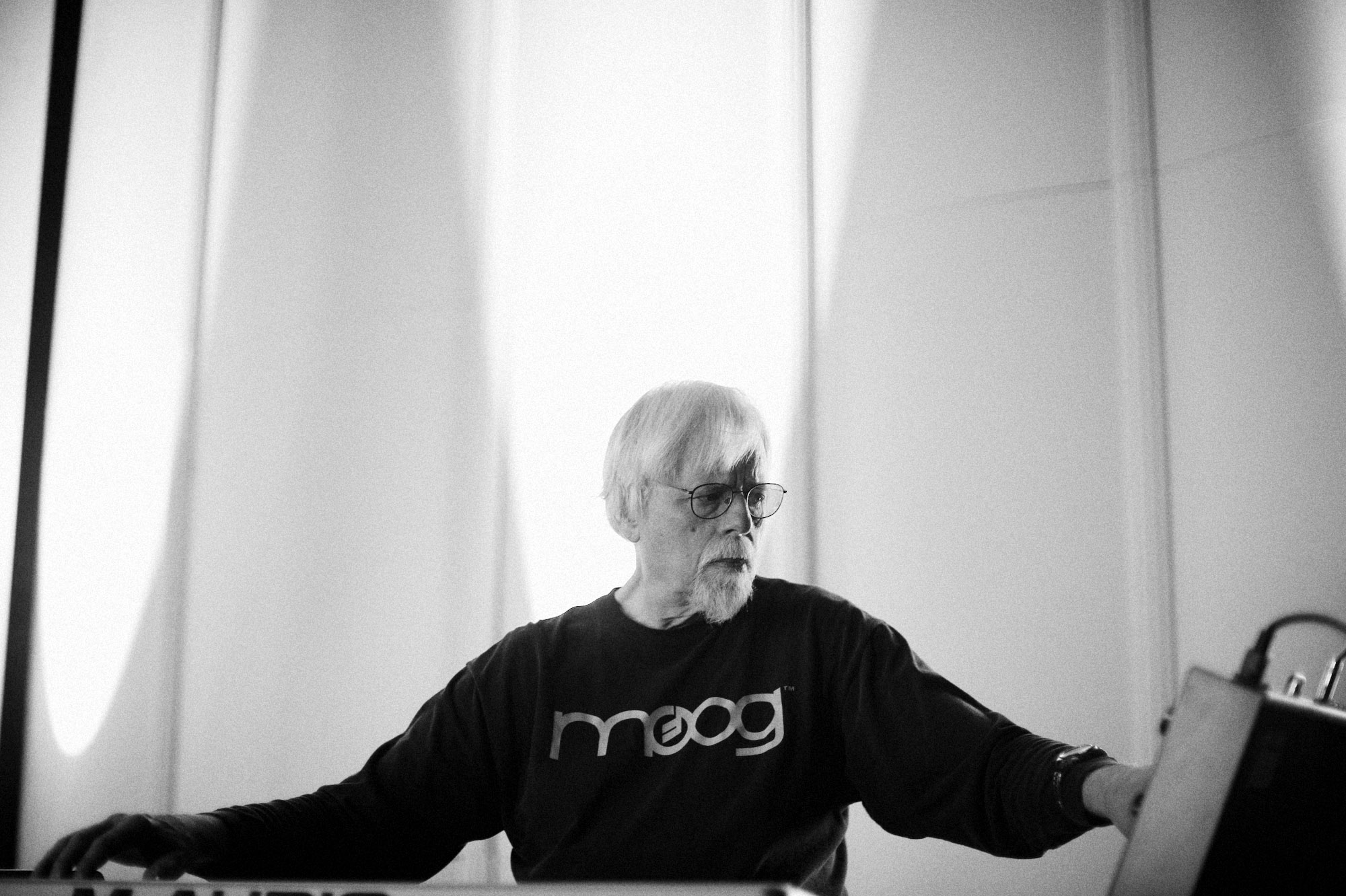
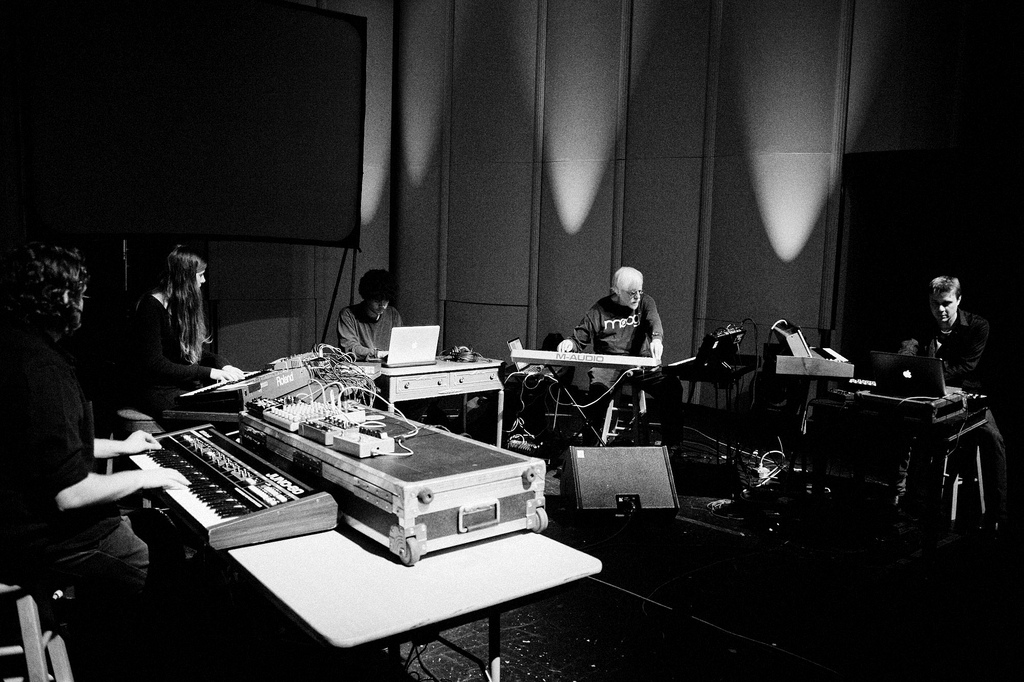
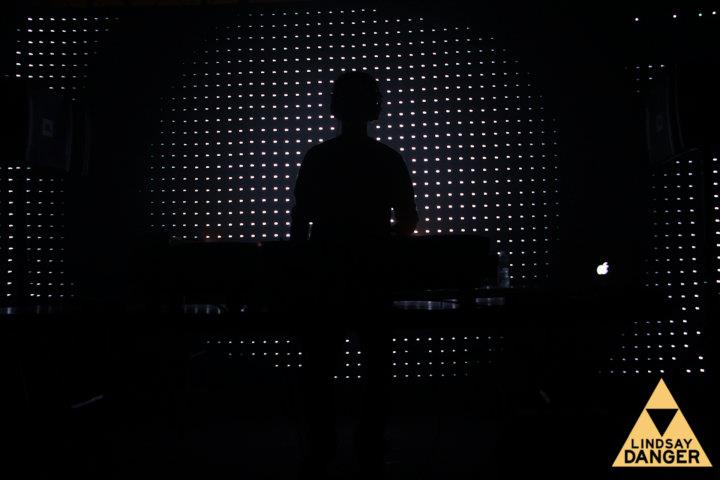
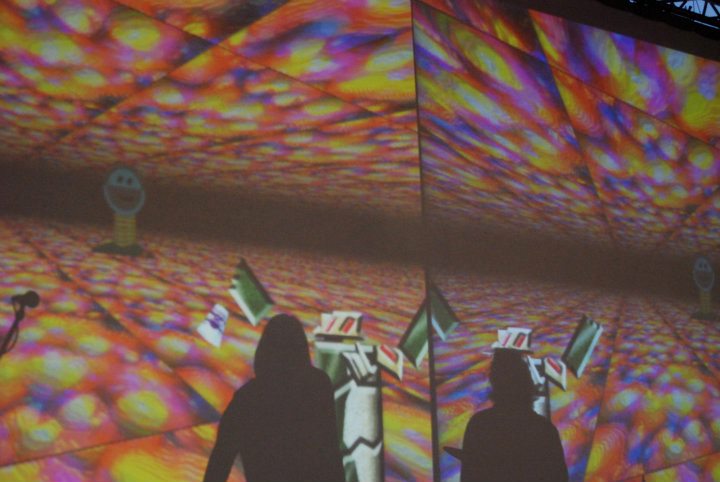
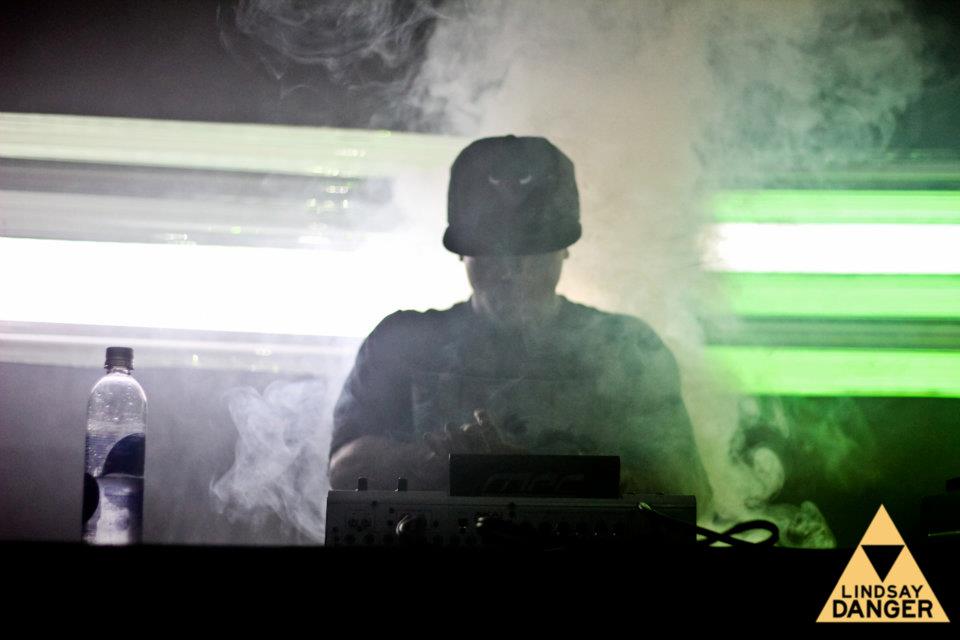
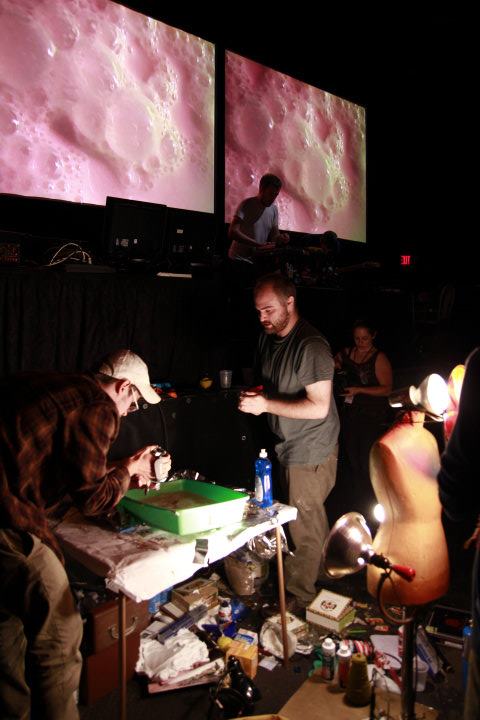
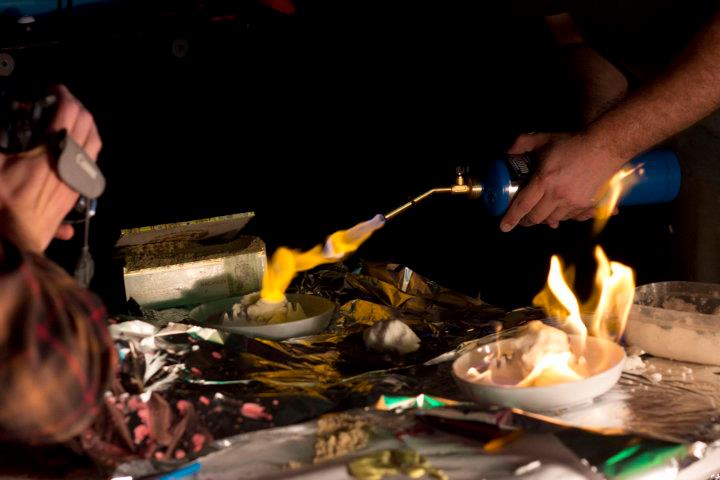
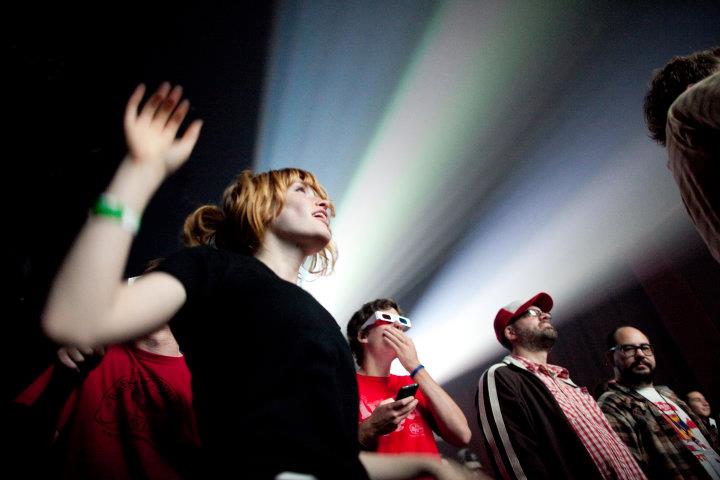
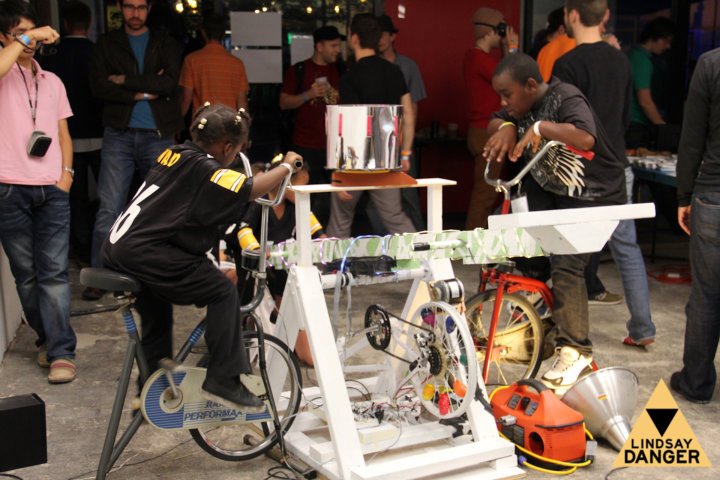
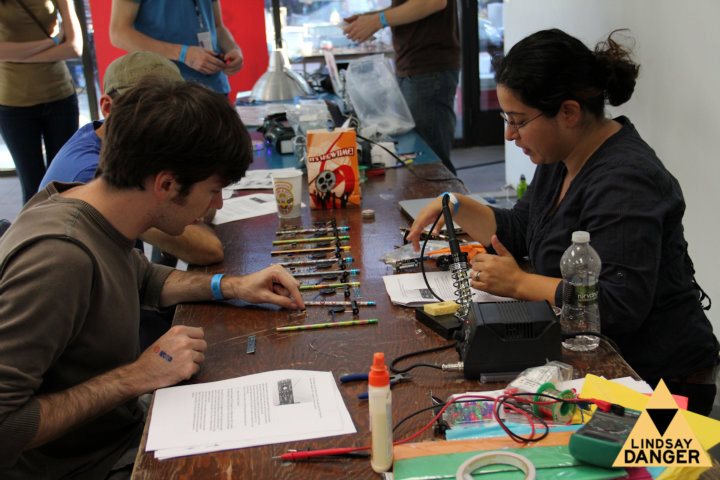

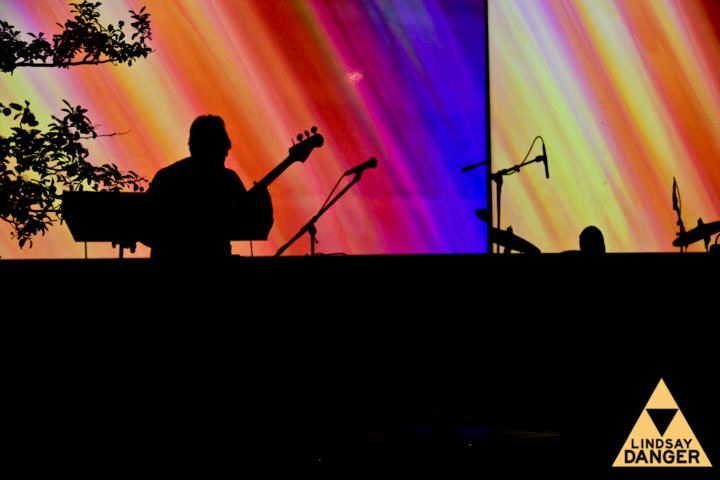
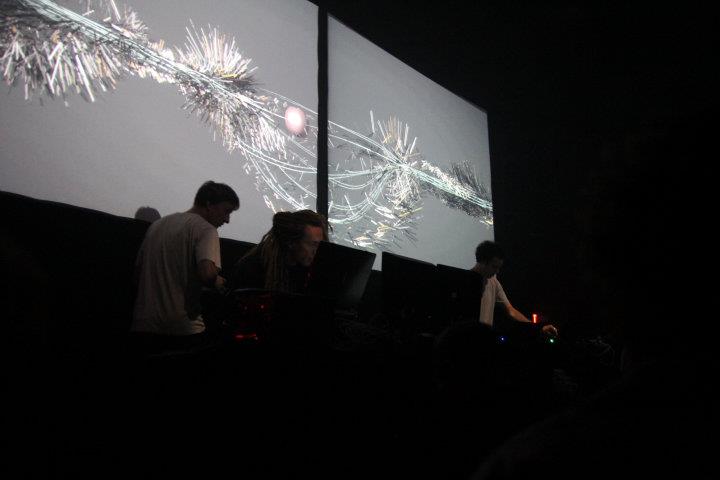
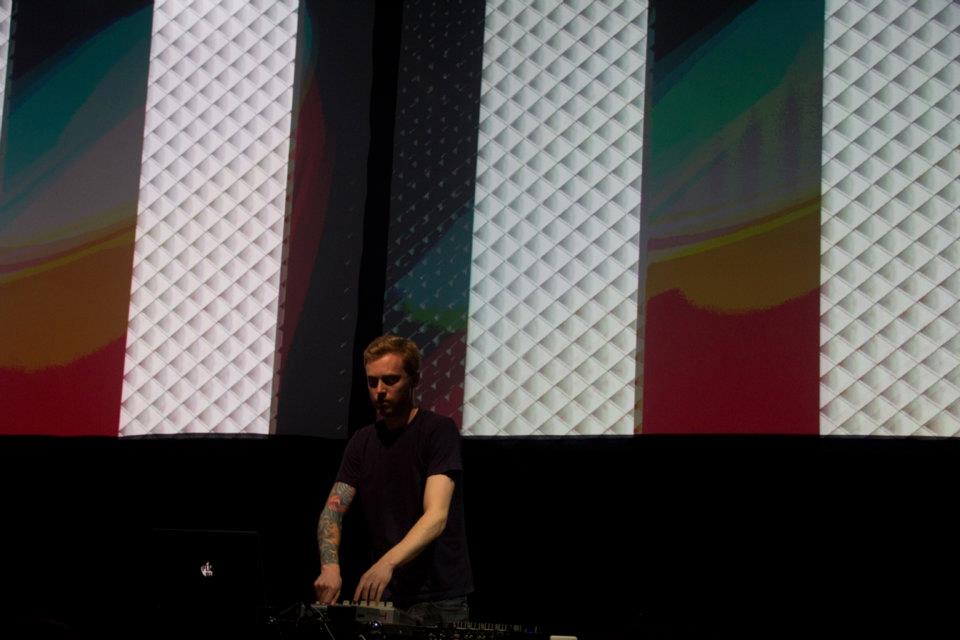
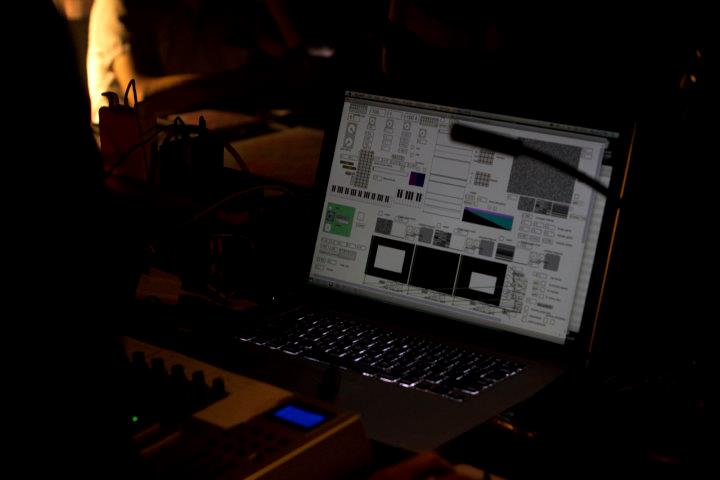
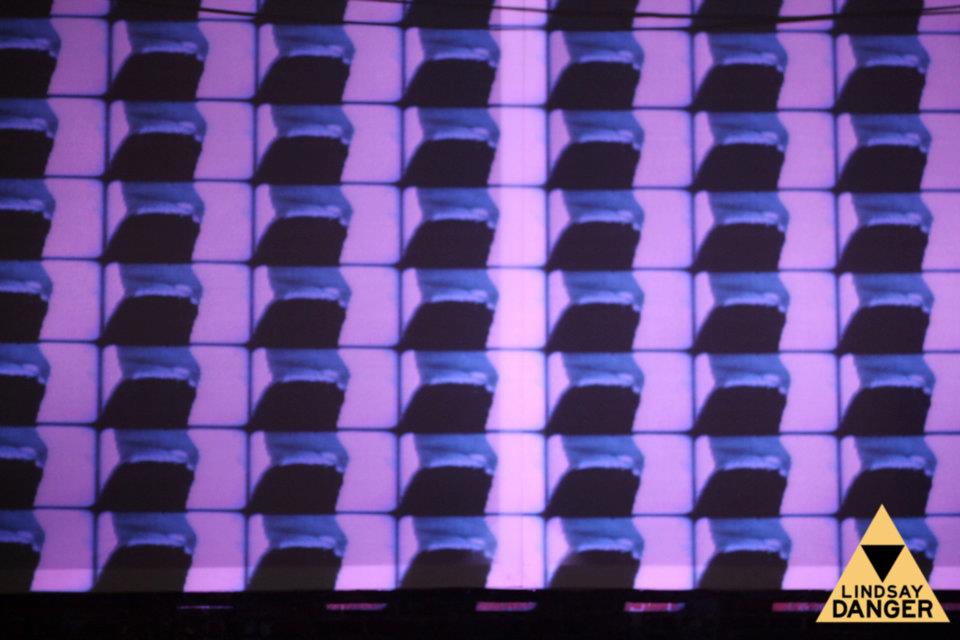
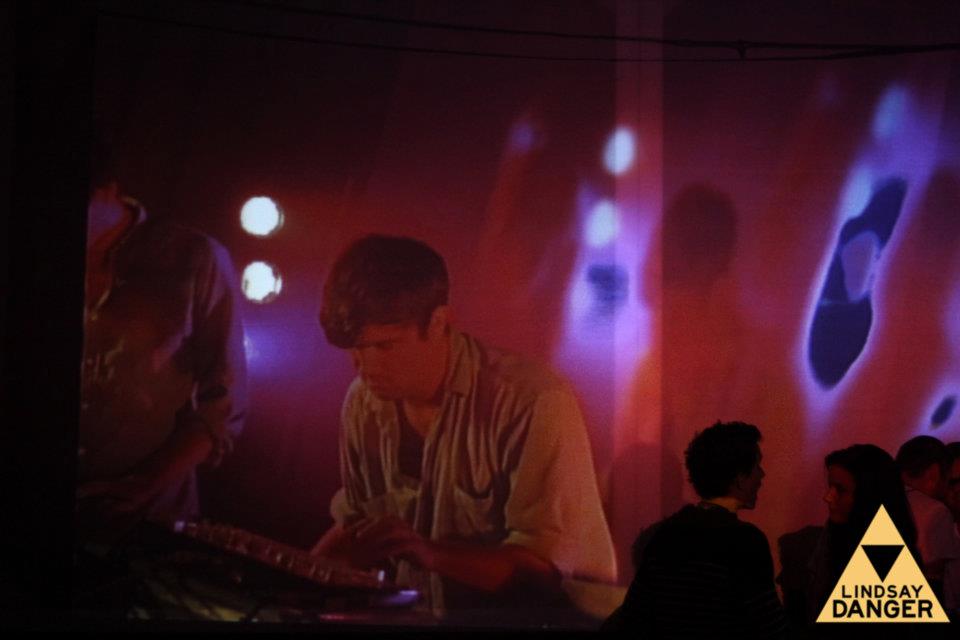
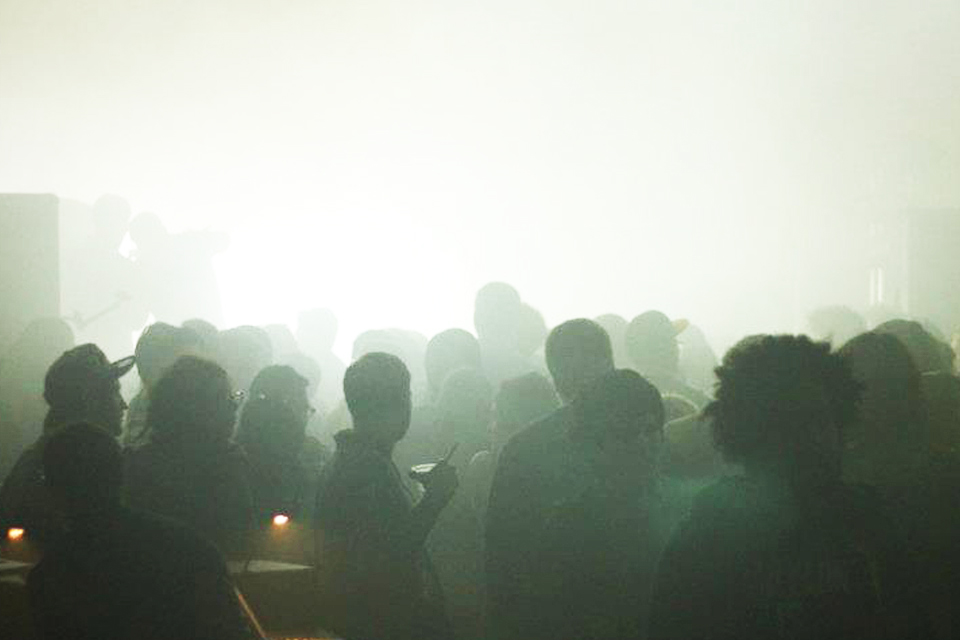
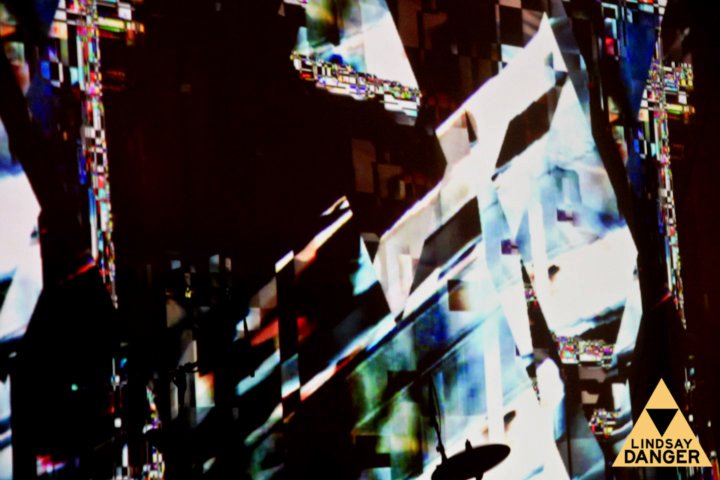
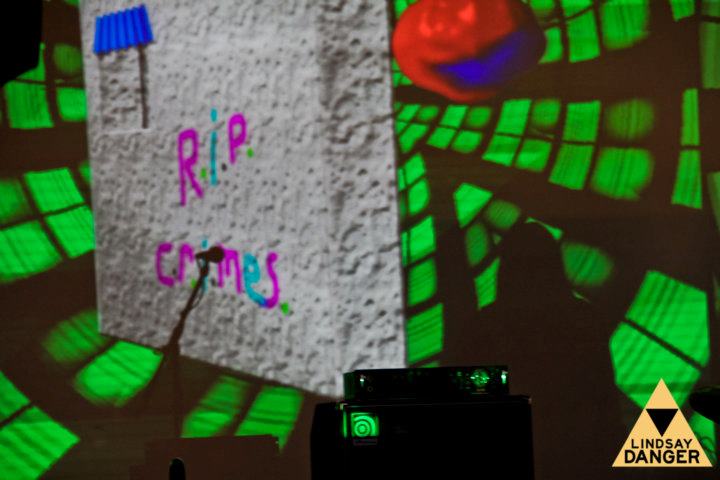
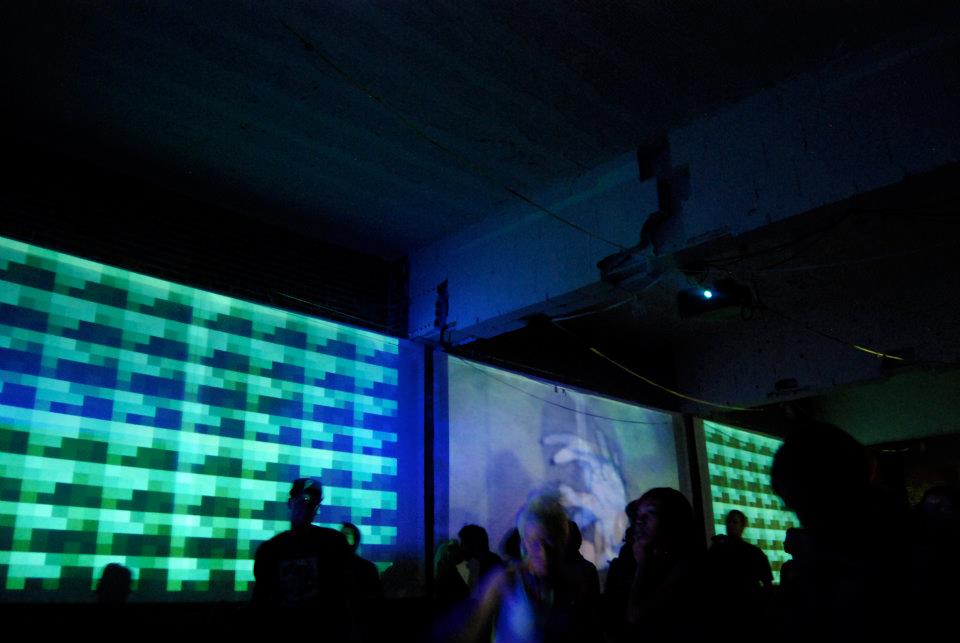
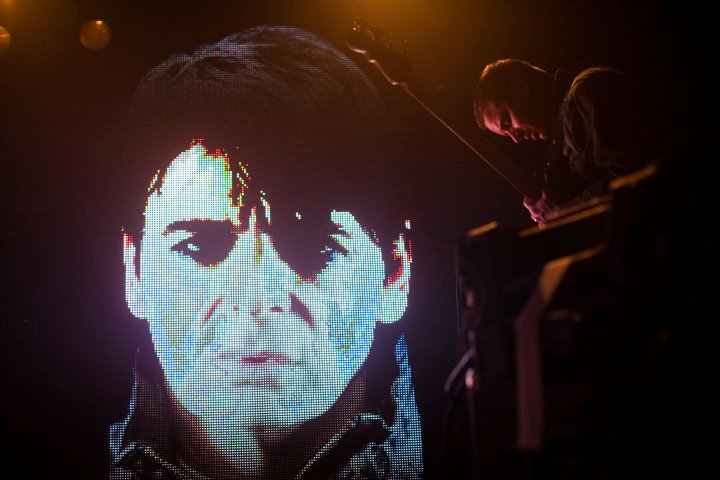
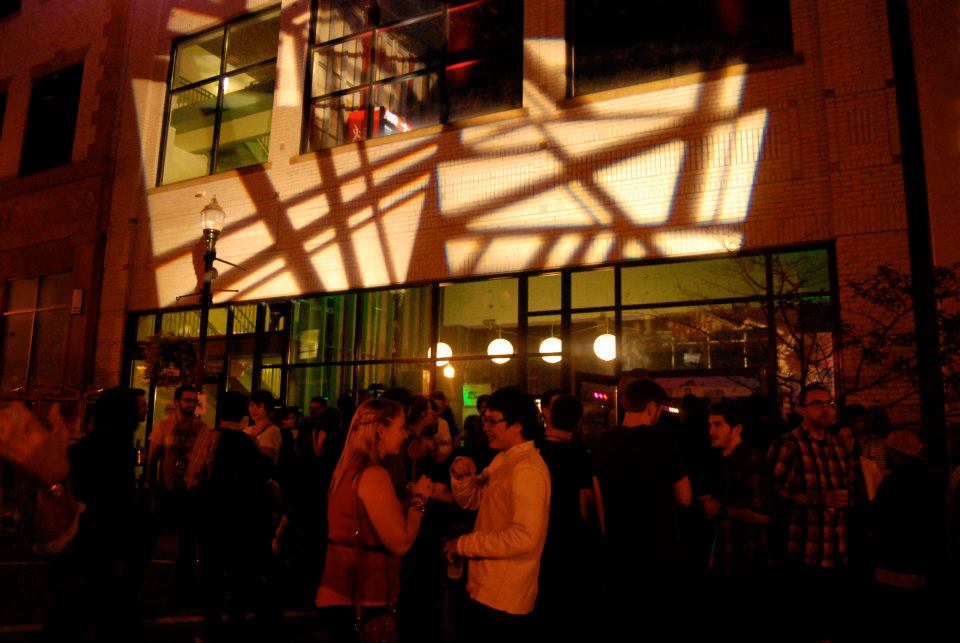
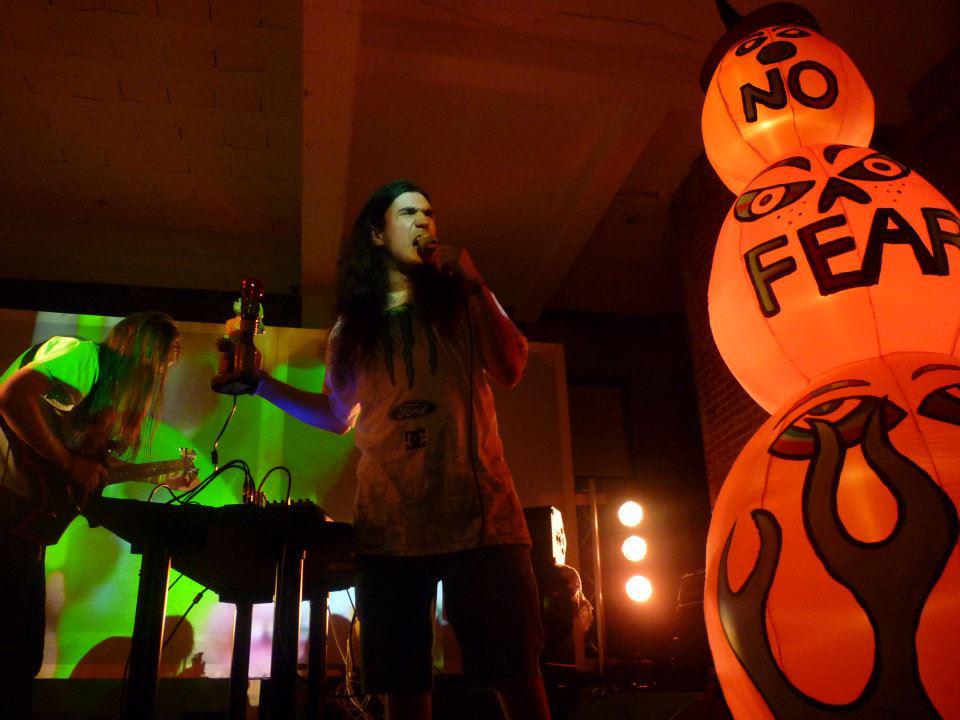
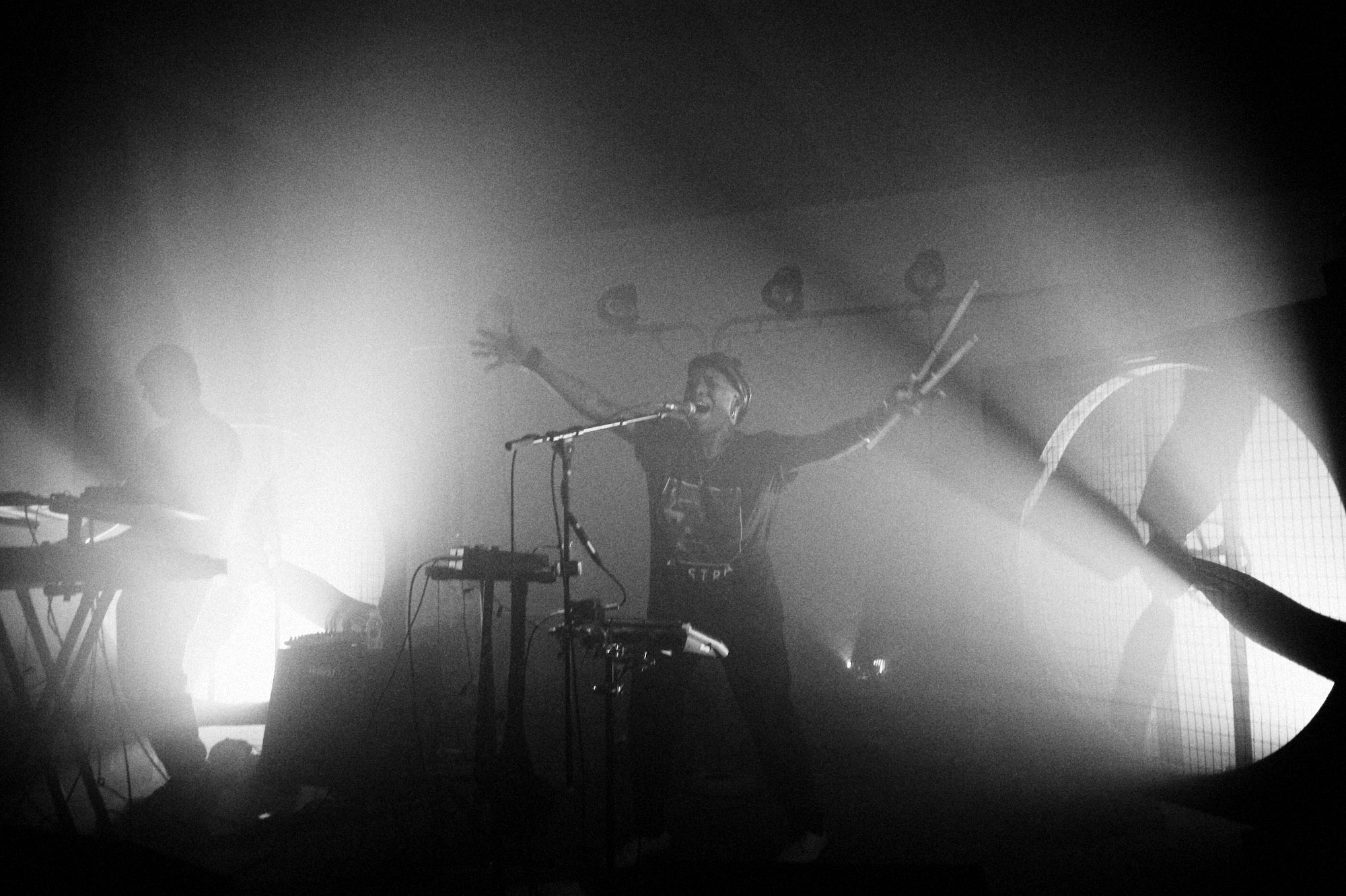
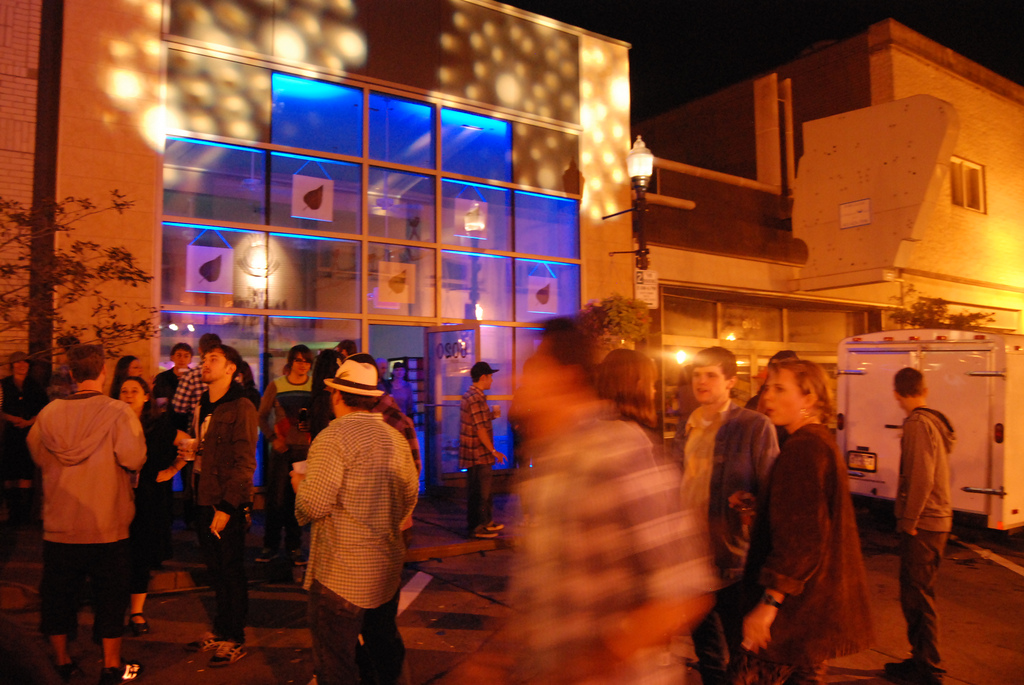
Our first in what would become multiple endeavors in the neighborhood of East Liberty, VIA 2011 took place across a city block of vacant storefronts and warehouses. These flagship venues were transformed to house a/v performances, workshops, and guest-curated programs in collaboration with the Warhol Museum, Carnegie Museum of Art, and Carnegie Mellon University.
A curatorial thread of "legacy" permeated the program, with headlining slots from Underground Resistance and Trans Am, to a video lounge linking works by Warhol to Paper Rad. Over at Carnegie Mellon campus, VIA partnered with the university to commission a 1-time only synth orchestra featuring David Borden (Moog) in collaboration with Laurel Halo, Daniel Lopatin, and James Ferraro. 2011 laid the groundwork for future intergenerational programs that aimed to trace a path to where we are today.
Learning and play evolved in the 2011 program, specifically around hacking culture and movement. DIY, mobile interactive projects that utilized bikes, cars, speakers, code and human energy in various forms brought audiences to activate adjacent sites in parking lots and street corners. Pittsburgh is a notoriously difficult city for bikers, and these projects aimed to engage audiences with tools to be critical, imaginative, and humorous, while raising awareness of biker safety organizations.
VIA 2011 was marked by exponential growth on all levels. Internally, we began learning how to navigate working with private developers and CDCs to evaluate and gain access to vacant property. Property and city "redevelopment" would continue to be a crucial component to how and where VIA could and would operate.
Featured Pop-up: 6018-6026 Broad Street, East Liberty, Pgh PA
Venues: 6018-6026 Broad Street, The Rex Theater, Shadow Lounge, Brillobox, Assemble